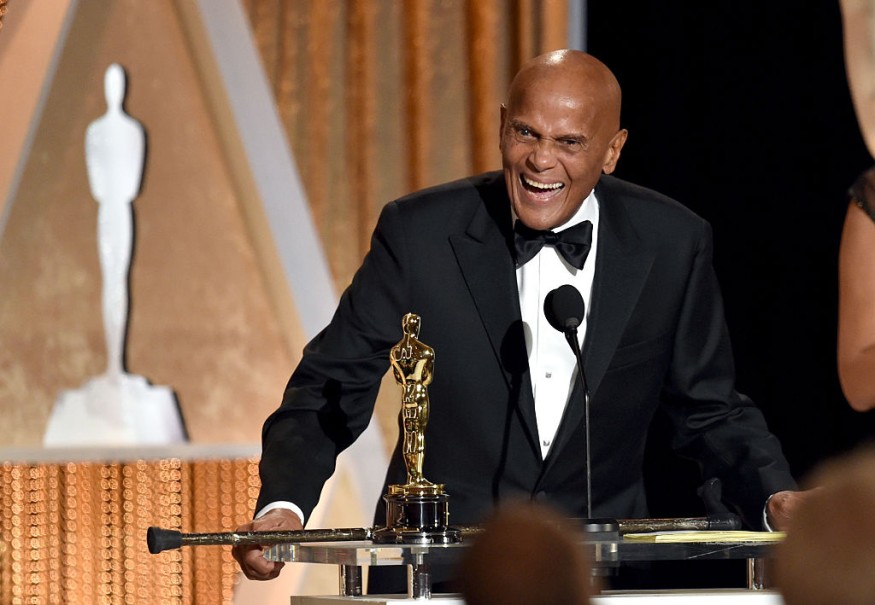Harry Belafonte Cause of Death Revealed

The publicist for the groundbreaking singer and actor turned civil rights advocate confirmed that Harry Belafonte cause of death was congestive heart failure.
Belafonte was 96, CBS News noted.
Belafonte died at his New York City home on Tuesday morning, his longtime publicist Ken Sunshine said.
He was known for his groundbreaking mainstream success in the 1950s music industry.
The classic Jamaican folk song "Banana Boat (Day-O)" from Belafonte's breakthrough 1956 studio album "Calypso" remains one of his most famous songs to this day.
Other popular songs included "Jamaica Farewell," well recognized as the song that introduced Caribbean rhythms to American pop music.
As a result of its immediate success, "Calypso" topped Billboard's "Top 100" and stayed in the chart for 31 weeks after its release.
Harry Belafonte's Early Life and Career
Belafonte was born into poverty in Harlem, New York, in 1927, although he spent the first eight years of his life in his parents' native Jamaica.
After moving back to New York to finish high school, he quickly dropped out due to dyslexia, according to The Guardian.
He worked as a market worker in the city's garment area until enlisting in the US Navy in March 1944 at 17, eventually becoming a weapons loader at a facility in New Jersey.
After the war, he worked as a janitor's helper. Still, he saw performances at New York's American Negro Theatre, together with fellow aspiring actor Sidney Poitier, and decided he wanted to be an actor.
He supported himself by singing folk, pop, and jazz pieces in New York club performances with bands that included Miles Davis and Charlie Parker while attending acting classes with students like Marlon Brando and Walter Matthau.
His first album, a compilation of traditional folk music, was released in 1954. When the US Billboard album chart debuted in March 1956, his second album, Belafonte, topped the charts.
However, his third album, "Calypso," which featured music from his Jamaican ancestry, was even more successful. It was the first record to sell over a million copies in the US and introduced many people to the upbeat calypso style for the first time.
"Day-O (The Banana Boat Song)," "Calypso's" lead single, became a hallmark song for Belafonte, spending 18 weeks in the UK singles chart and three weeks at No. 2.
Harry Belafonte's Later Years
Belafonte started using a cane, and his formerly smooth singing voice faded to a low whisper as he became older. However, his movie star looks and revolutionary drive remained constant throughout his life, said CNN.
He received the Spingarn Medal, the NAACP's highest accolade, in 2013. In his award speech, he said that "radical thought" is currently lacking in the fight for freedom.
"America has never been moved to perfect our desire for greater democracy without radical thinking and radical voices being at the helm of any such quest," he said.
In addition to the Kennedy Center Honor in 1989, the National Medal of Arts in 1994 and the Grammy Lifetime Achievement Award in 2000 also honored Belafonte. He later went on to serve as a mentor to other artists.
He had everything he needed to be happy being the King of Calypso: good looks, money, and fame. But he went in a different direction. His most significant achievements were behind the scenes.
Harry Belafonte leaves behind his wife Pamela, his four children Adrienne, Shari, Gina, and David, as well as two stepchildren, Sarah and Lindsey Frank, and eight grandkids.
This is owned by Latin Post.
Written by: Bert Hoover
WATCH: Legendary singer, civil rights activist Harry Belafonte dies at 96 - From ABC7
Subscribe to Latin Post!
Sign up for our free newsletter for the Latest coverage!
© 2026 Latin Post. All rights reserved. Do not reproduce without permission.















